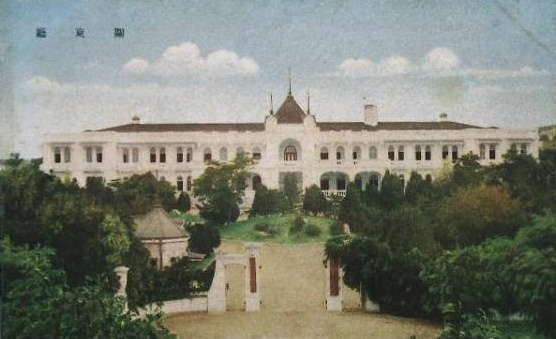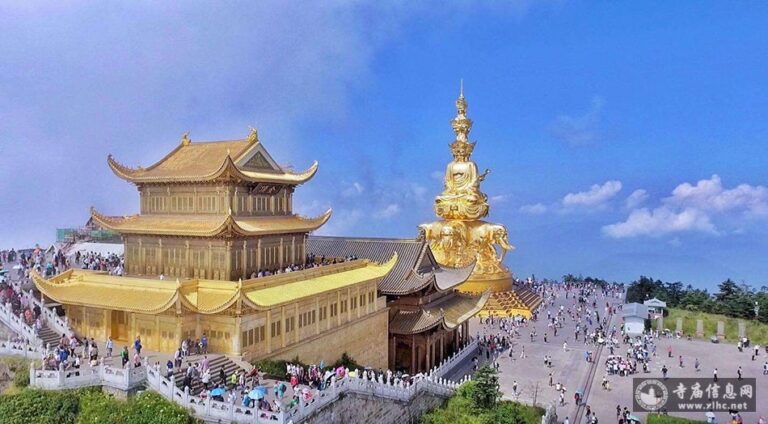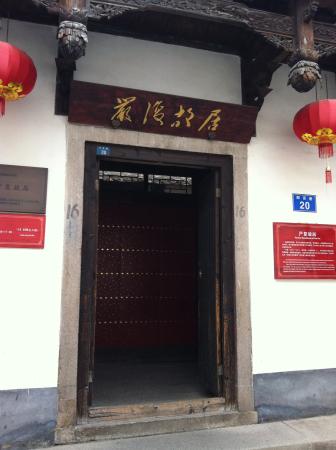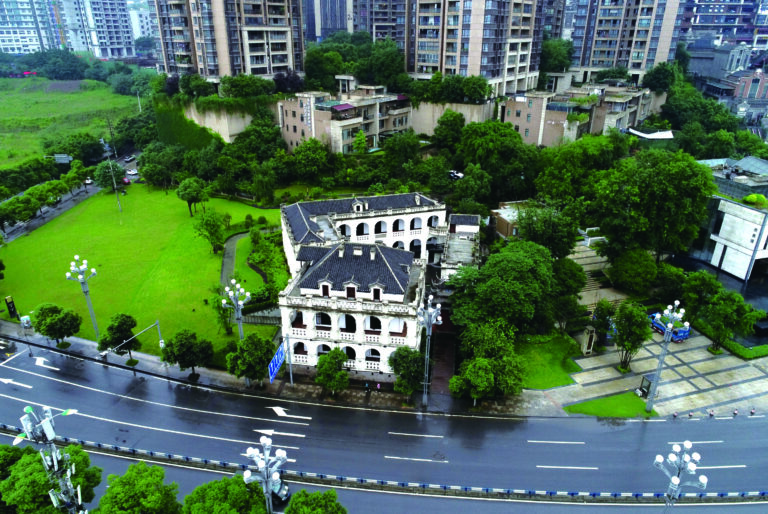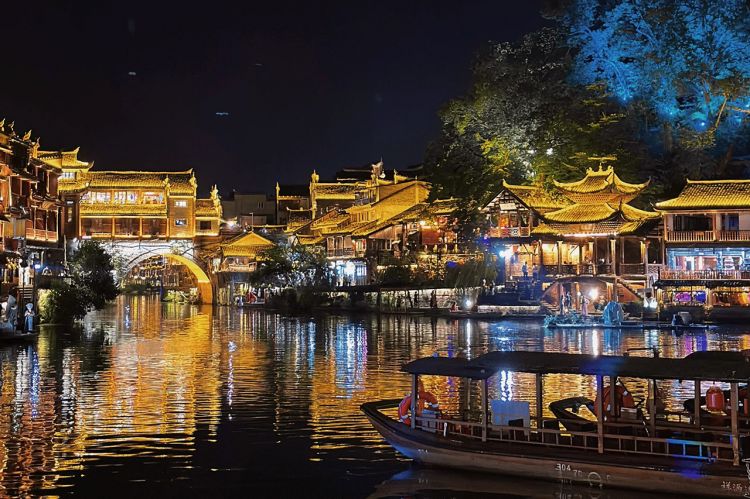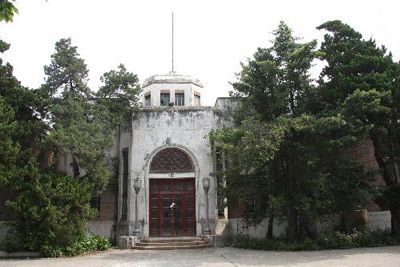Zhoukou Taikangwenmiao: Where Tradition Meets Tranquility in Zhoukou
An Essential Guide to Visiting Zhoukou Taikangwenmiao
In This Guide
- An Essential Guide to Visiting Zhoukou Taikangwenmiao
- The Rich History of Zhoukou Taikangwenmiao
- Main Highlights: What to See at Zhoukou Taikangwenmiao
- Planning Your Visit: A Practical Guide
- Tickets, Hours, and Booking
- How to Get There
- Local Cuisine and Accommodation
- Frequently Asked Questions
- Final Thoughts on Your Trip
Nestled in the heart of Taikang County, the Zhoukou Taikangwenmiao, or Taikang Confucian Temple, stands as a testament to China’s rich historical and cultural tapestry. Established in 1426 during the Ming Dynasty, this revered site has weathered the storms of time—experiencing destruction, reconstruction, and restoration—making it a symbol of resilience and enduring reverence for education and Confucian values.
The temple is not just an architectural marvel; it embodies the spirit of scholarly pursuit and moral cultivation that Confucius championed. Originally serving as a center for the study of Confucianism and a venue for important ceremonies honoring the sage himself, the temple reflects the cultural significance that education held in ancient China. As visitors stroll through its hallowed halls, they are transported back in time, surrounded by intricately designed structures that echo the grandeur of a bygone era.
Despite the ravages of warfare and neglect, the temple still houses two main structures: the Worship Hall and the Great Hall. These buildings, reconstructed in the Qing Dynasty, showcase exquisite craftsmanship, intricate decorations, and a profound sense of peace. The temple precincts, which include picturesque courtyards and ancient trees, create a serene atmosphere ideal for reflection and learning—an experience that resonates with both scholars and casual visitors alike.
Today, Zhoukou Taikangwenmiao serves as both a historical landmark and a cultural hub for local residents and tourists. It offers a glimpse into the scholarly traditions that shaped Chinese civilization and continues to inspire new generations to explore the depths of Confucian thought. Whether you are a history enthusiast, a culture seeker, or simply looking for a tranquil escape, the Taikang Confucian Temple promises an enriching journey through time and wisdom.
The Rich History of Zhoukou Taikangwenmiao
The Zhoukou Taikangwenmiao, commonly referred to as the Taikang Confucian Temple, boasts a rich tapestry of history that reflects the cultural and educational evolution of the Taikang County in Henan Province, China. Established in 1426 during the Ming Dynasty, this temple was originally built to honor Confucius and serves as a testament to the region’s commitment to Confucian ideals and scholarship.
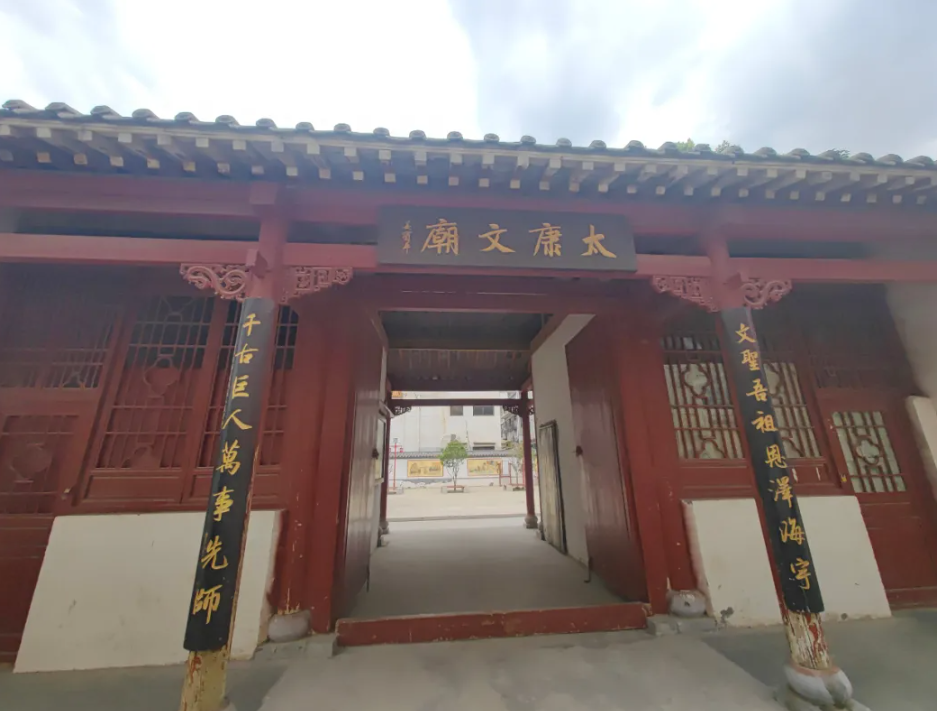
Zhoukou Taikangwenmiao.
The temple’s early years were marked by its role as a vital educational institution. It functioned as the county school, where scholars gathered to study and impart Confucian teachings. However, the temple’s history was not without turmoil. In 1642, during the tumultuous period of the Ming Dynasty’s decline, the original structure was severely damaged by war. It wasn’t until 1648, during the early Qing Dynasty, that the temple was rebuilt, reflecting the resilience of the local community and their dedication to preserving Confucian culture.
Throughout the centuries, the Taikangwenmiao underwent several renovations and restorations, particularly during the reigns of the Kangxi Emperor in 1667 and again in 1934 during the Republic of China era. Each restoration aimed to maintain the temple’s architectural integrity and its significance as a center for education. Despite the challenges of time, including neglect and the ravages of war, the temple has been recognized for its cultural and architectural value. It was classified as a provincial key cultural relic protection unit in 1986 by the Henan Provincial Government.
The temple complex originally featured several notable structures, including the Pan Pool, the Lingxing Gate, and the Dacheng Hall. While many of these buildings have succumbed to the ravages of time and conflict, the existing structures, particularly the Dacheng Hall and the Worship Hall, showcase exquisite Qing Dynasty architectural features. The Dacheng Hall, elevated on a stone platform, is adorned with colorful tile roofs and intricate carvings, demonstrating the artistry of the era.
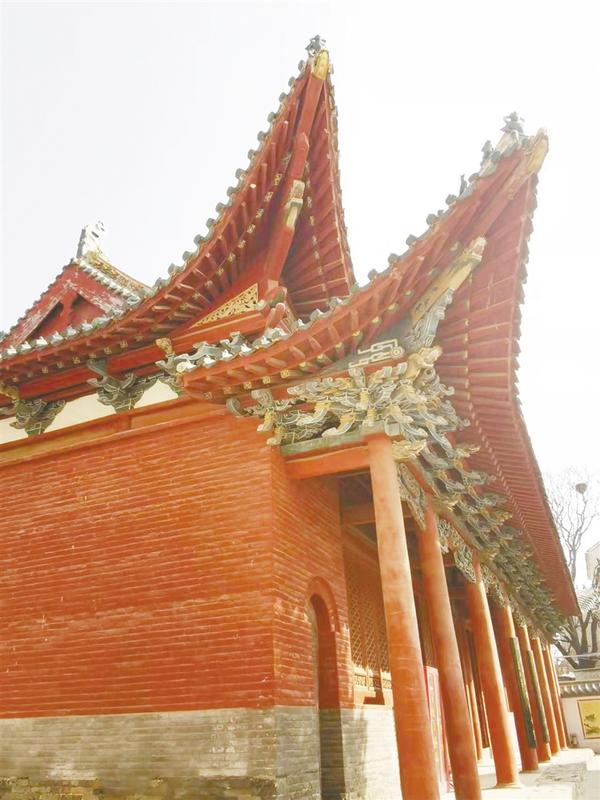
Zhoukou Taikangwenmiao.
As a site of worship and education, the Taikangwenmiao has hosted many significant ceremonial events over the years. Notably, the grand Confucius worship ceremonies held in the second lunar month and early August have drawn community members and local dignitaries alike, reinforcing the temple’s role as a cultural hub. During these ceremonies, attendees participate in a solemn ritual that includes offerings and musical performances, reflecting the deep reverence for Confucian teachings.
Today, the Taikangwenmiao continues to serve as a base for cultural education, particularly for students studying traditional Chinese philosophy and literature. While the focus has shifted from rote memorization of classical texts to a broader understanding of their historical context and significance, the temple remains a symbol of Taikang’s rich cultural heritage. Visitors to the site can appreciate not only its architectural beauty but also its enduring legacy as a center for learning and moral cultivation.
Main Highlights: What to See at Zhoukou Taikangwenmiao
The Zhoukou Taikangwenmiao, or Taikang Confucius Temple, is an architectural gem and cultural cornerstone located in the heart of Taikang County, Henan Province. This historical site is not only a beautiful example of traditional Chinese architecture but also a pivotal institution in the preservation and promotion of Confucian culture.
Dating back to its original construction during the Ming Dynasty in 1426, the temple has undergone numerous restorations, particularly after suffering damage during conflicts and natural wear. The most significant of these renovations took place in the Qing Dynasty, particularly in 1667 and again in 1934. Today, the temple is recognized as a provincial-level key cultural relic protection unit, underscoring its historical significance.
Visitors to the Taikangwenmiao can admire its impressive layout, centered around the main hall known as the Dacheng Hall, which is adorned with intricate decorations and features a raised platform and stone steps leading up to it. The hall is flanked by the Worship Hall, both of which showcase exquisite craftsmanship typical of the Qing era. The temple complex originally included several structures such as the Pan Pond, Lingxing Gate, and various pavilions, although only the main hall and the worship hall remain today.
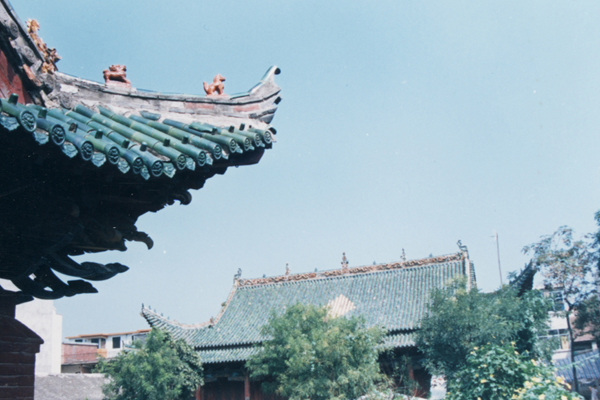
Zhoukou Taikangwenmiao.
One of the temple’s most notable features is its role in Confucian ceremonies. Each year, the temple hosts grand rituals honoring Confucius, particularly in the second lunar month and early August. These ceremonies attract local scholars, dignitaries, and students, who participate in traditional rites that emphasize respect for education and moral values. The rituals, which include music and intricate ceremonial procedures, highlight the temple’s ongoing commitment to fostering Confucian ideals and educational philosophy.
The surrounding area, particularly the historic academic street adjacent to the temple, adds to the cultural richness of the visit. This locale not only serves as a reminder of the temple’s academic roots but also as a vibrant community hub where local culture thrives.
For those interested in Chinese history, architecture, or philosophy, the Taikangwenmiao offers a profound glimpse into the past, making it a must-visit destination in Zhoukou. Whether you’re drawn to its serene environment, intricate designs, or the lively cultural practices that occur within its walls, the temple stands as a testament to the enduring legacy of Confucianism in China.
Planning Your Visit: A Practical Guide
Zhoukou Taikangwenmiao, or the Taikang Confucius Temple, is an important cultural and historical site located in the heart of Taikang County, in the Zhoukou region of Henan Province, China. This ancient temple complex not only serves as a tribute to Confucius, the revered Chinese philosopher, but also stands as a significant center for education and cultural activities. Here’s a practical guide to help you make the most of your visit.
Getting There
The Taikang Confucius Temple is situated approximately 70 meters west of the North Street Primary School on Tongyi North Road in the Hui Nationality Town of Taikang County. The site is easily accessible by public transport or taxi. If you are driving, there are nearby parking facilities available.
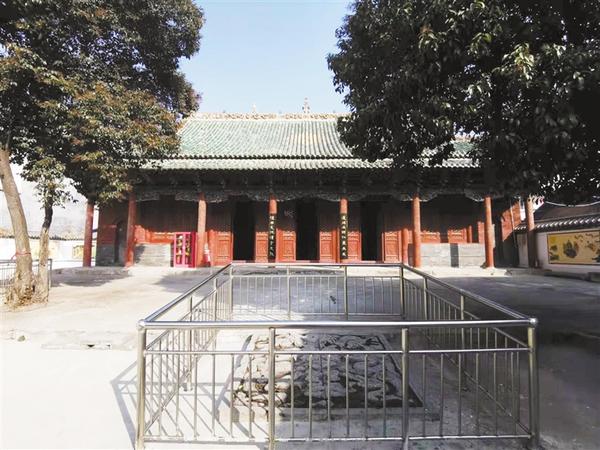
Zhoukou Taikangwenmiao.
Opening Hours
While specific hours may vary, the temple generally remains open throughout the day. It is advisable to check local resources or inquire upon arrival for the most accurate information.
Admission
Currently, entry to the Taikang Confucius Temple is free of charge. This makes it an excellent opportunity to explore the temple’s architectural beauty and rich history without any financial burden.
What to See
The temple complex covers an area of approximately 2,870 square meters and features several notable structures, including:
- The Great Hall (大成殿): This is the main hall dedicated to Confucius. It features a stunning façade adorned with colorful ceramic figures and intricate carvings.
- The Worship Hall (拜殿): This hall is where rituals and ceremonies are conducted in honor of Confucius. The architecture reflects traditional Chinese design, complete with ornate roof decorations.
- The Main Axis: The temple’s layout follows a central axis, which is a common characteristic of Confucius Temples, enhancing the sense of harmony and order.
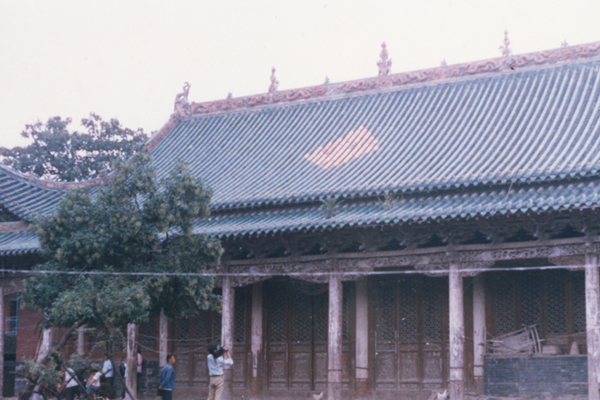
Zhoukou Taikangwenmiao.
Visitors can also enjoy the tranquil atmosphere and beautiful gardens that surround the temple, making it a perfect spot for reflection and learning.
Cultural Significance
The Taikang Confucius Temple not only commemorates the teachings of Confucius but also serves as an educational hub. It hosts various events, particularly during the Confucius Memorial Ceremony, which occurs twice a year in the lunar months of February and early August. These ceremonies attract local dignitaries, scholars, and students who gather to pay their respects and participate in traditional rites.
Nearby Attractions
After visiting the temple, consider exploring the surrounding area. Notable nearby sites include:
- Taikang Hui Culture Museum: Delve into the rich heritage of the Hui ethnic group.
- Amida Buddha Temple: A serene place for meditation and cultural exploration.
Dining and Accommodations
There are several dining options within walking distance of the temple, offering local delicacies such as Lu Rou (braised donkey meat) and various noodle dishes. For accommodations, options range from budget hotels to more upscale establishments in Taikang County, ensuring a comfortable stay.
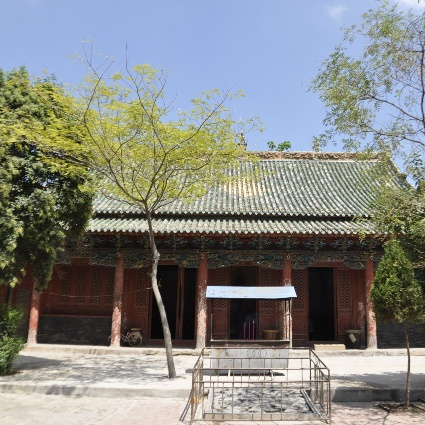
Zhoukou Taikangwenmiao.
Tips for Visitors
- Respect Local Customs: When visiting the temple, dress modestly and be mindful of the cultural significance of the site.
- Photography: Be respectful while taking photographs, especially during ceremonies.
- Guided Tours: Consider engaging a local guide to enrich your understanding of the temple’s history and significance.
Conclusion
The Taikang Confucius Temple is not just a place of worship but a vital part of Henan’s cultural landscape. Whether you are a history buff, a culture enthusiast, or simply seeking a peaceful retreat, this temple offers a unique glimpse into China’s rich heritage. Enjoy your visit!
Tickets, Hours, and Booking
When planning a visit to the Zhoukou Taikangwenmiao (太康文庙), it’s essential to know the ticketing details to ensure a smooth experience.
Ticket Information for Zhoukou Taikangwenmiao
-
Admission Fee: Currently, entrance to the Zhoukou Taikangwenmiao is free of charge. This makes it an accessible destination for both locals and tourists alike, allowing everyone to appreciate this cultural landmark without any financial barriers.
-
Opening Hours: While specific hours may vary, it is advisable to check local resources or inquire on-site for the most accurate information regarding opening times. The temple is generally open throughout the week, making it convenient for visitors to explore at their leisure.
-
Guided Tours: Although entry is free, guided tours may be available for those interested in a deeper understanding of the temple’s rich history and architectural significance. Be sure to check with local tour operators or at the temple for any available services.
-
Location: The temple is located at the north side of Huanxue Street in the county town of Taikang, Henan Province. It is conveniently situated near other local attractions, making it easy to include in a day of sightseeing.
-
Accessibility: The temple is situated in an area that is generally accessible, but it’s advisable to check for any specific access needs if traveling with individuals who may require assistance.
Zhoukou Taikangwenmiao stands as a testament to the region’s cultural heritage, and visiting it offers a unique glimpse into the historical significance of Confucian teachings and Chinese architecture. Enjoy your visit!
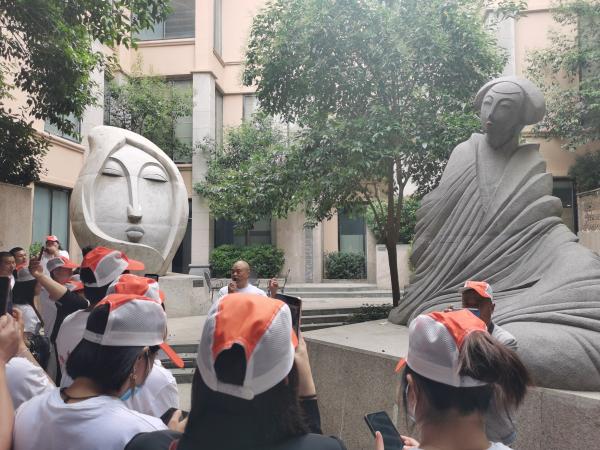
Zhoukou Taikangwenmiao.
How to Get There
Reaching Zhoukou Taikangwenmiao, also known as the Taikang Confucian Temple, can be an enriching experience that allows visitors to engage with both the historical and cultural facets of the region. Here’s a comprehensive guide to navigating transportation options to and within Taikang County.
Getting There
By Air
The nearest major airport is Zhengzhou Xinzheng International Airport, located approximately 130 kilometers from Taikang County. From the airport, you have a couple of options:
- Taxi: The most convenient option, though it can be relatively expensive (around 400 RMB). The journey takes about 2 hours, depending on traffic.
- Airport Shuttle: Look for shuttle buses that may take you to Zhengzhou’s central bus or train stations where you can catch a more affordable journey to Taikang.
By Train
Zhoukou Railway Station is the closest major train station to Taikang, situated roughly 50 kilometers away. Here’s how to proceed:
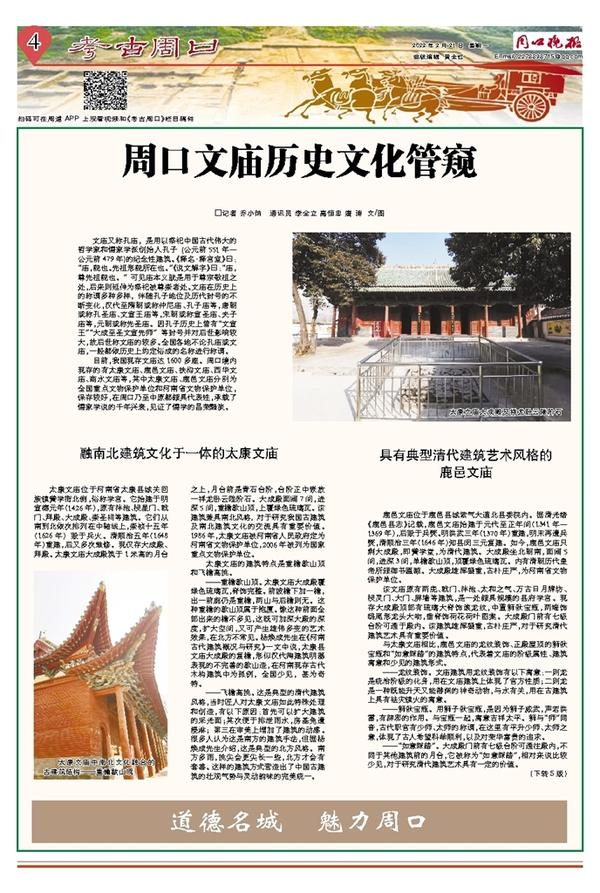
Zhoukou Taikangwenmiao.
- Train to Zhoukou: Take a train from major cities like Zhengzhou, Xuchang, or Kaifeng to Zhoukou Railway Station.
- Local Transport to Taikang: Once at Zhoukou Station, you can take a local bus or a taxi to reach Taikang County. The bus ride takes about 1 hour, while a taxi may take around 40 minutes.
By Bus
For those traveling from nearby cities, long-distance buses provide a reliable means of reaching Taikang:
- Bus Services: Buses to Taikang depart from various cities within Henan Province. Zhengzhou, Kaifeng, and Luohe have frequent services. It’s advisable to check the local bus schedule as they vary throughout the day.
- Bus Station in Taikang: Upon arrival, you’ll find that the local bus station is conveniently located in the town center, making it easy to access accommodations and attractions.
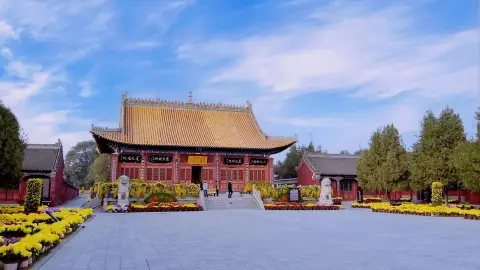
Zhoukou Taikangwenmiao.
Getting Around Taikang
Local Buses
Taikang features a network of local buses that can take you to various attractions, including the Taikang Confucian Temple. The bus fares are quite economical, typically ranging from 1 to 3 RMB depending on the distance.
Taxis and Ride-Sharing
Taxis are readily available throughout Taikang. They are an efficient way to get around, especially if you are traveling in a group or wish to visit multiple sites within a short period. Ride-sharing apps like Didi Chuxing also operate in the area, offering a convenient alternative.
Bicycles and Walking
For those who prefer a more leisurely pace, renting a bicycle can be a delightful way to explore the scenic surroundings of Taikang. The town is compact, and many of its attractions, including the Taikang Confucian Temple, can be easily accessed on foot.
Tips for Travelers
- Language: English may not be widely spoken, so having a translation app handy or learning a few basic Chinese phrases can be beneficial.
- Cash: While larger establishments may accept digital payments, smaller vendors and local transportation might require cash (RMB). ATMs are available, but it’s wise to carry some cash for convenience.
- Weather Considerations: Depending on the season, prepare for varying weather conditions. Summers can be hot and humid, while winters are cold. Dress appropriately to ensure comfort during your travels.
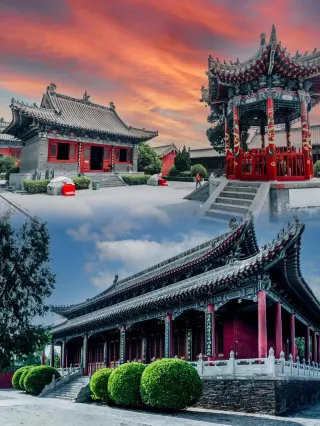
Zhoukou Taikangwenmiao.
With this guide, navigating your way to and around Taikang should be a straightforward and enjoyable experience, allowing you to fully appreciate the rich cultural heritage embodied in the Taikang Confucian Temple.
Local Cuisine and Accommodation
When visiting the Zhoukou Taikangwenmiao (太康文庙), it’s essential to experience the local cuisine and find comfortable accommodations to enhance your journey through this culturally rich region.
Culinary Delights
Zhoukou is known for its diverse food scene, with an array of options ranging from traditional Chinese dishes to local specialties. Here are some must-try dishes and dining spots:
-
Donkey Meat Buns (驴肉火烧): A local favorite, these savory buns filled with tender donkey meat are a must-try. Head to Lü Rou Huoshao Restaurant, located just a short distance from the Confucian Temple, for an authentic taste.
-
Sour Yogurt (酸奶): Sample the region’s renowned sour yogurt at Manmi Yogurt, where you can enjoy a refreshing and tangy treat. This is particularly popular among locals and visitors alike.
-
Hot Pot (火锅): If you’re in the mood for something warm and communal, visit Korean Rice Cake Hot Pot. The rich flavors and variety of ingredients make it a perfect dining choice for groups.
-
Street Snacks: Explore the vibrant street food scene along Huangxue Street, where vendors offer a variety of snacks, including fried pastries, grilled skewers, and more.
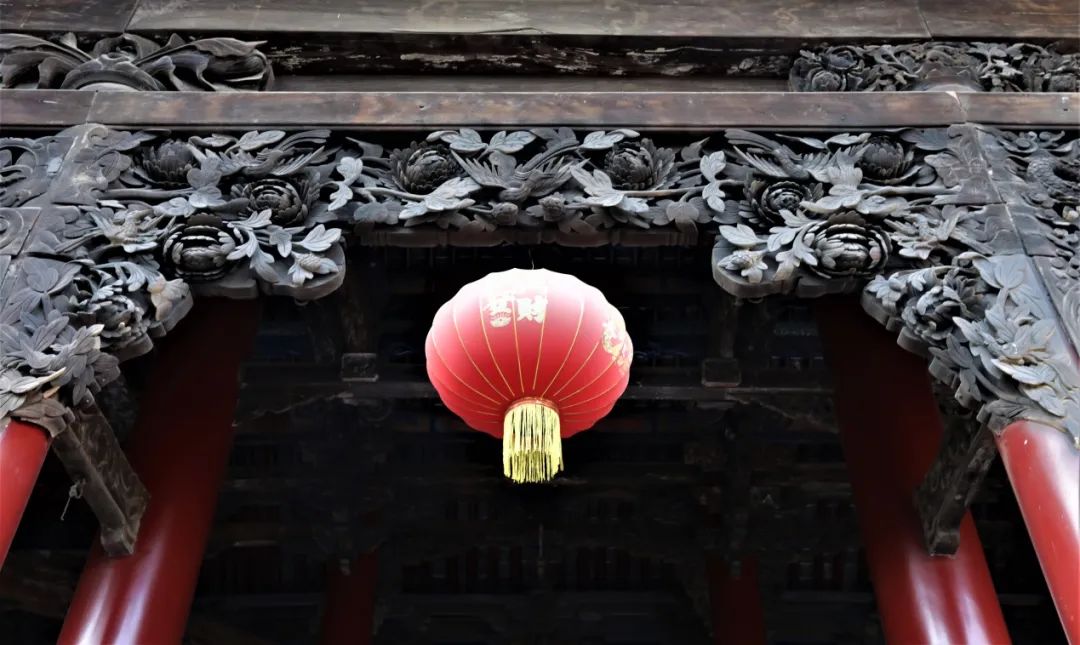
Zhoukou Taikangwenmiao.
Accommodation Options
For a restful stay in Taikang, several hotels cater to different budgets and preferences:
-
Vienna International Hotel (维也纳国际酒店): Located conveniently near the city center, this hotel offers modern amenities and comfortable rooms, making it a great choice for travelers looking for convenience.
-
Taikang Hongtai International Hotel (太康宏泰国际大酒店): This hotel features elegant decor and excellent customer service. It’s ideal for travelers seeking a more luxurious experience, with amenities such as a restaurant and fitness center.
-
Taikang Wancheng International Hotel (太康万城国际大酒店): Known for its affordability and good service, this hotel is a popular choice among budget travelers. It is well-situated, offering easy access to local attractions.
-
Budget-Friendly Options: If you’re looking for something more economical, consider the Taikang Xinguang Hotel or Xintai Hotel, which provide basic accommodations at reasonable prices, ensuring a comfortable stay without breaking the bank.
Whether you’re savoring the local cuisine or resting up after a day of exploration, Zhoukou Taikangwenmiao offers a delightful blend of food and hospitality that will enrich your travel experience.
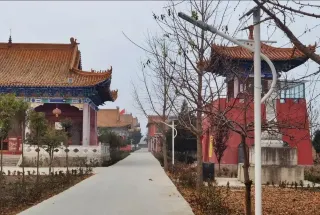
Zhoukou Taikangwenmiao.
Frequently Asked Questions
-
What is Zhoukou Taikangwenmiao?
Zhoukou Taikangwenmiao, also known as the Taikang Confucian Temple, is a historic site located in Taikang County, Henan Province, China. Established in 1426 during the Ming Dynasty, it serves as a cultural center dedicated to Confucian teachings and education. -
How do I get to Taikangwenmiao?
The temple is situated in the heart of Taikang County, approximately 70 meters west of the North Street Primary School on Tuanjie North Road. Visitors can easily access it by public transportation or by taxi from nearby towns and cities. -
Is there an entrance fee to visit the temple?
Currently, entry to Taikangwenmiao is free of charge. However, it’s advisable to check for any updates or special events that might affect access. -
What can I see at the Taikangwenmiao?
The temple complex features several notable structures, including the Dacheng Hall and the Worship Hall, both rebuilt during the Qing Dynasty. Visitors can admire the intricate architectural details and explore the temple grounds, which reflect the rich history of Confucian education. -
Are there any special events held at the temple?
Yes, the temple hosts grand ceremonies in February and early August to honor Confucius. These events attract local scholars, officials, and students, showcasing traditional rites and music that celebrate Confucian values. -
Can I take photographs inside the temple?
Photography is generally allowed in the public areas of the temple, but visitors should be respectful of the sacred spaces and other attendees. It’s recommended to inquire about specific restrictions upon arrival. -
What facilities are available for visitors?
While the temple primarily focuses on cultural and educational activities, basic amenities such as restrooms are available. Visitors are encouraged to bring water and snacks, as there may not be food vendors on-site. -
Is Taikangwenmiao suitable for children?
Yes, the temple is a great place for children to learn about Chinese culture and Confucian teachings. Educational programs and guided tours may be available to enhance their understanding and appreciation of this historic site.
Final Thoughts on Your Trip
Visiting Zhoukou Taikangwenmiao is not just an opportunity to admire ancient architecture; it is also a journey into the heart of Chinese culture and education. This historic temple, originally built in the Ming Dynasty, stands as a testament to the enduring legacy of Confucianism and the reverence for scholarly pursuits in Chinese society. Though the ravages of time and conflict have diminished its grandeur, the essence of the temple remains alive, representing a place where knowledge and morality were once nurtured.
As you wander through the well-preserved structures, such as the Dacheng Hall and the Worship Hall, you can almost hear the echoes of scholars and students from centuries past, engaged in dialogues that shaped their community. The annual ceremonies honoring Confucius continue to attract locals and visitors alike, providing a glimpse into the traditions that have shaped this region.
Whether you are a history enthusiast, a student of philosophy, or simply a curious traveler, Taikangwenmiao offers a meaningful experience that bridges the past and the present. Embrace the tranquility of its surroundings, reflect on the teachings of Confucius, and appreciate the cultural richness that this site embodies. Your visit will not only enrich your understanding of Chinese heritage but also inspire a deeper connection to the values of education and respect that are timeless in any culture.
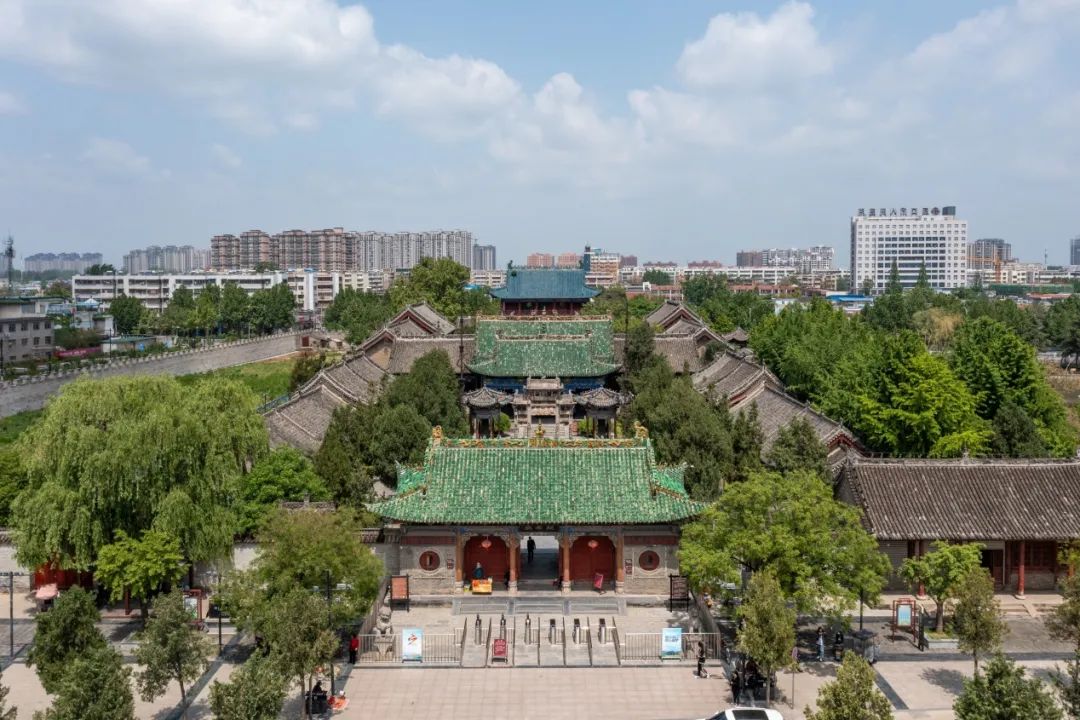
Zhoukou Taikangwenmiao.
